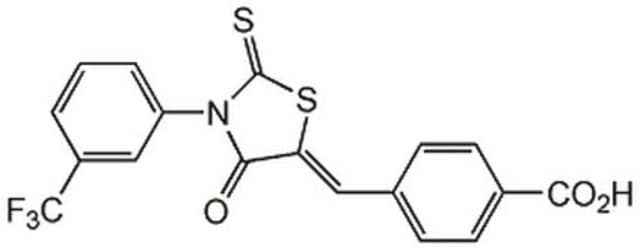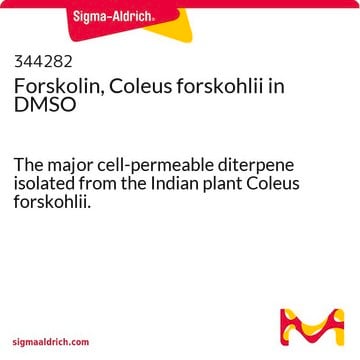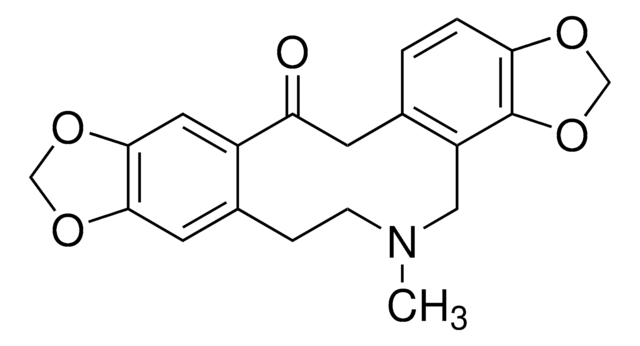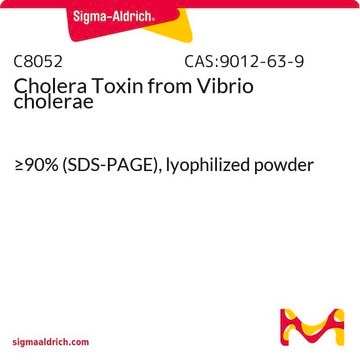C2992
CFTR Inhibitor-172
≥98% (HPLC), powder, CFTR inhibitor
Synonim(y):
5-[(4-Carboxyphenyl)methylene]-2-thioxo-3-[(3-trifluoromethyl)phenyl-4-thiazolidinone
About This Item
Polecane produkty
product name
CFTR(inh)-172, ≥98% (HPLC), powder
Poziom jakości
Próba
≥98% (HPLC)
Postać
powder
kolor
yellow
rozpuszczalność
DMSO: ≥10 mg/mL
H2O: insoluble
temp. przechowywania
2-8°C
ciąg SMILES
OC(=O)c1ccc(cc1)\C=C2\SC(=S)N(C2=O)c3cccc(c3)C(F)(F)F
InChI
1S/C18H10F3NO3S2/c19-18(20,21)12-2-1-3-13(9-12)22-15(23)14(27-17(22)26)8-10-4-6-11(7-5-10)16(24)25/h1-9H,(H,24,25)/b14-8+
Klucz InChI
JIMHYXZZCWVCMI-RIYZIHGNSA-N
Zastosowanie
Działania biochem./fizjol.
produkt powiązany
Kod klasy składowania
11 - Combustible Solids
Klasa zagrożenia wodnego (WGK)
WGK 3
Środki ochrony indywidualnej
dust mask type N95 (US), Eyeshields, Faceshields, Gloves
Certyfikaty analizy (CoA)
Poszukaj Certyfikaty analizy (CoA), wpisując numer partii/serii produktów. Numery serii i partii można znaleźć na etykiecie produktu po słowach „seria” lub „partia”.
Masz już ten produkt?
Dokumenty związane z niedawno zakupionymi produktami zostały zamieszczone w Bibliotece dokumentów.
Klienci oglądali również te produkty
Nasz zespół naukowców ma doświadczenie we wszystkich obszarach badań, w tym w naukach przyrodniczych, materiałoznawstwie, syntezie chemicznej, chromatografii, analityce i wielu innych dziedzinach.
Skontaktuj się z zespołem ds. pomocy technicznej










